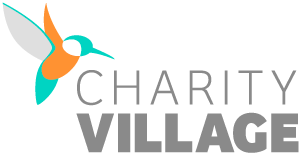The unparalleled nature of this COVID-19 crisis we’re currently facing means we do not have a roadmap for what to expect, and gathering information on the impact is essential to reacting quickly and appropriately.
Over the past several weeks, our team has made it a priority to reach out to diverse organizations across the country and across sub-sectors in order to listen to their stories and gain a better understanding of what organizations are experiencing. The stories and insights they’ve shared with us have helped the sector react quickly and advocate for support from the federal government to address our greatest needs. This is the first of a number of blog posts in which we’ll feature stories of COVID-19’s impact on the sector.
When asking organizations about the challenges they’re currently facing, falling revenues are a dominant concern. Most charities, nonprofits and social enterprises are financed through some combination of fundraising, grants, and earned income. Unfortunately, all three revenue streams have taken a massive hit due to a combination of social distancing measures and an economic downturn.
Cancelled campaigns and donors feeling the pinch: Fundraising the in the era of COVID-19
Across the country, fundraising galas are cancelled or postponed, charity runs and golf tournaments have been called off, and with many feeling the pinch on their own personal finances, individual donations are down. We heard from the Huntsville Hospital Foundation, which funds equipment and technology needs for its local hospital. Because they are located in a vacation destination, many of their donors work in the service industry and have lost their jobs due to COVID-19. “We count on their donations in order to fund the hospital” Katherine Craine, Executive Director remarked, “We cannot provide equipment to our hospital without the support of these donors.”
Similarly, Camrose Open Door, an Alberta regional nonprofit organization that offers support services to youth in need and their families has seen a 75% decrease in public donations funding and a massive drop in food donations in the last 2 months, while demand for their services within the community has been steadily increasing.
It is not simply a matter of being unable to raise funds at this very moment- the impacts will be felt throughout the year. Take, for example, the experience of l’Association québécoise du lymphœdème (AQL), an organization whose main fundraising activities take place each Spring. They will need to reschedule fundraising activities to the Fall, conflicting with a period when funds are typically raised for breast cancer; a related but separate illness. The AQL will therefore be competing to raise funds from a multi-solicited donor base during a period of economic hardship. The organization expressed fears that without emergency funding, it might have to shut its doors permanently.
Earned revenues are grinding to a halt
When it comes to earned revenues, the sector is subject to the same challenges faced by the retail market. Many organizations rely on the sale of goods and services for income, but social distancing measures have made many revenue generating activities impossible. The Raw Carrot is a social enterprise which employs people with disabilities to make soup part-time, supplementing their Ontario Disability Support Program stipends and bringing them closer to the poverty line. This work also creates important social connections. The Raw Carrot relies on volunteers for core program capacity, but since they are no longer available as a result of social distancing, kitchens have been shut down, and staff are having to turn to food banks for food support. The social enterprise would need funding in order to put in place the necessary health measures to make it safe for staff and volunteers to resume food production.
MindFuel is a Calgary-based non-profit which has for 31 years provided STEM learning resources for youth across Canada. During a period of time when children are unable to attend school and are instead learning digitally, demand for quality online learning resources has risen sharply and MindFuel is now supporting tens of thousands of Canadian students weekly. Because they believe in the importance of universal access to education, MindFuel has reacted by removing paywalls from all of their digital platforms, ensuring that their K-12 curriculum-tied materials are accessible to all children, parents, and teachers who need them. However, their generosity has meant losing its sole source of earned revenue. Unfortunately, they have also had grants put on hold or cancelled altogether, leaving them without revenue and questioning their long-term viability.
While some in the sector have been able to transition to working from home, for many, such as those in the arts sector, that isn’t an option. Live performances are impossible for the foreseeable future, and there is little ability for performers to work from home. Original Kids Theatre, an organization that supports youth development through theatre, is concerned about the effects of cancelled programming during their busiest season. As a self-sustaining organization, their revenue is dependent on program tuition and ticket sales—all of which has been reduced to zero during a crucial revenue generating time of year. Significant sunk costs have already been incurred for their summer productions, and now there is no way to off-set them—let alone make up the thrill of performing for their youth who have worked so hard to train and rehearse. Jeffery Crane, Executive Director of Original Kids Theatre, expressed his concern about “the uncertainty of an end point” when programming can continue. “As an organization,” he noted, “we do not have the capacity to sustain four to six months of minimal revenue.”
Most charities and nonprofits do not have cash reserves, and are in fact discouraged – by supporters, donors, and other funders – from having them. This means that when revenues suddenly decline, the impact is felt almost immediately. Consequently, during the first few weeks of the COVID-19 pandemic in Canada, we heard many stories about substantial layoffs and of organizations fearing that they would be forced to close their doors permanently. While the Canada Emergency Wage Subsidy (CEWS) will help prevent further layoffs and allow some organizations to rehire staff, others lack the cash flow to front payroll costs prior to receiving reimbursement through the subsidy, and many organizations are still struggling to pay for core operating expenses such as rent. The sector is diverse and therefore will require a range of relief measures if organizations are to survive and continue to serve communities throughout COVID-19 and beyond.
Organizations mobilizing for pan-sector support
As the COVID-19 pandemic took root in Canada, the charitable and nonprofit sector sprung into action, mobilizing to advocate for relief measures and raising awareness among the public about the pressing challenges faced by charities, nonprofits and social enterprises. These efforts have resulted in the sector’s inclusion in several key programs, including the CEWS and the Emergency Community Support Fund. You can see a summary of federal government measures that will help some or all of the sector here.
Our work continues. We’re currently focusing our advocacy efforts on a Sector Resilience Grant Program, which would provide funding to cover core operating costs and support organizations not included in the CEWS. Send a letter to your MP and other key Ministers in support of this initiative. As part of a holistic approach to supporting the sector, we’re encouraging greater philanthropy – especially from higher income Canadians.
We’re continuing to gather stories from the sector about how COVID-19 is impacting them – if you’d like to submit your own, please do so here. We’re also conducting research into COVID-19’s impact on charities this spring. We’ll continue to work alongside the sector through the COVID-19 crisis and beyond to strengthen our collective ability to serve communities, individuals, animals and the environment, at home and abroad.
This article was originally published on the Imagine Canada website and is reprinted here with permission.
Emily Jensen is Imagine Canada‘s Coordinator, Network Engagement and works out of their Montreal office.












